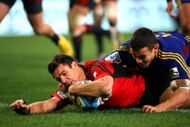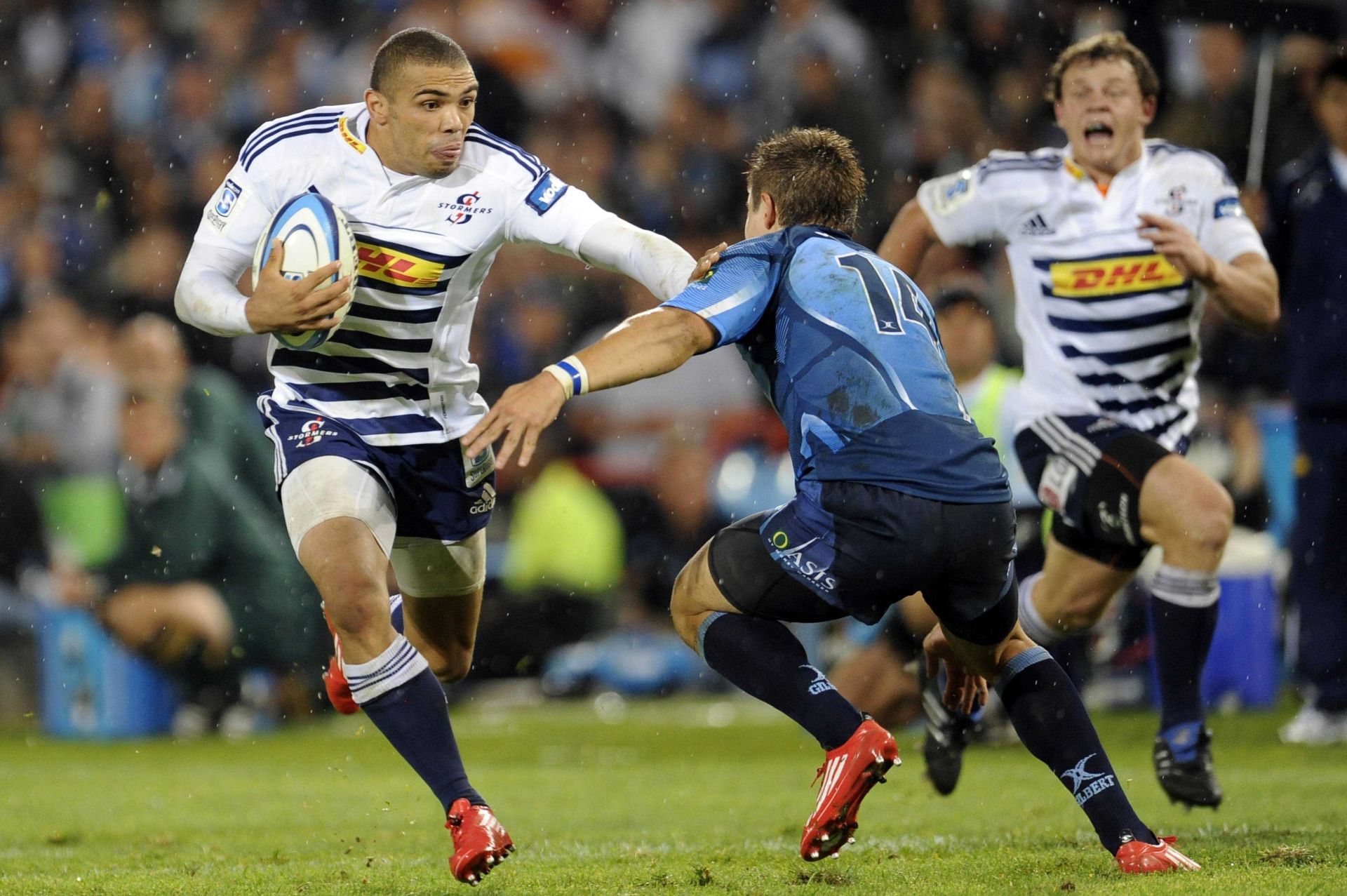The glory days of Super Rugby seem to have passed since South Africa left the competition in 2020 for the greener pastures of Europe. Competition has arguably declined in the absence of the back-to-back Rugby World Cup champs.
Super Rugby used to be the pinnacle of world rugby when the domestic sides of New Zealand, Australia, and South Africa clashed annually. All-Black rugby starring Dan Carter and Richie McCaw was some of the most feared in the game, next to that of the Springboks and Wallabies.
The famous era of the Super 14 saw golden years in the sport, where the southern hemisphere also dominated on the international stage.
As 2025 marks 15 years since the end of the Super 14, let's explore the last days of one of the competition's most iconic times.

South Africa stands tall to end the Super 14 era
While New Zealand's Crusaders and Australia's Waratahs largely left South African sides like the Sharks, Cheetahs, and Lions in the dust, the Bulls and Stormers met their fire with fire.
The dominance of rugby down under saw the Sharks, Cheetahs, and Lions all finish the 2010 Super 14 season buried in the bottom half of the table. However, Pretoria's Bulls and Cape Town's Stormers took the Kiwis and Wallabies to task that year, grabbing the top two spots on the log ahead of the knockout stage. The Waratahs and Crusaders followed closely behind in third and fourth.
The Reds were the closest team in contention that missed out on the next stage, placing two points behind the side from Christchurch. Their 44-21 away loss to the Hurricanes in Round 13 badly limped their knockout stage hopes. So much so that their 38-36 nail-biting victory over the Highlanders in Round 14 wasn't enough to save them.
Final Super 14 season sees many interesting records
The dying embers of Super 14 witnessed some intriguing storylines. In the Brumbies' 24-15 win over the Western Force, centre Stirling Mortlock started the campaign by becoming the first-ever player to score 1,000 points in Super Rugby.
Fans didn't have to wait long for more action. The very next week, spectators in Coca-Cola Park, Johannesburg, were treated to the highest-scoring game in Super Rugby history when the Lions welcomed the Chiefs.
As the Chiefs edged the Lions 72-65, they also set a new record for most points scored by an away side. The game's 18 total tries happened to be another record on the day.
In a losing effort, Lions centre Wandile Mjekevu's hat-trick, in addition to six more team tries, weren't enough to fend off the Kiwis. Chiefs coach Ian Foster, on the other hand, didn't travel to the City of Gold thinking nine tries would hardly be enough to overcome a Lions team that came off a 26-13 Stormers beating the week before.
Nonetheless, kicker Stephen Donald's goalkicking proved to be the difference-maker next to centre Richard Kahui's hat-trick.

While Dan Carter became the all-time leading points scorer in Super Rugby history in 2010, the Stormers set a unique record of their own that year.
Allister Coetzee's side ran the Crusaders out of Cape Town in Round 12, crushing them 42-14. As a result, the Stormers stand as the first-ever South African team to beat every New Zealand team in the round-robin stage of the season.
In another milestone, although the Lions featured in an impressive record against the Chiefs earlier, the same can't be said for their Round 14 clash. Losing to the Cheetahs in their season finale, the men from Joburg became the second team in Super Rugby history to lose all their matches in a season, 13 games straight. Lions winger Michael Killian's one try did little to stop the 59-10 destruction.
They joined the Bulls side of 2002 led by Heyneke Meyer, who lost all 11 of their Super 12 games that year in a gloomy time in Bulls history.
The Bulls rise again in Super Rugby
The Bulls have come a long way since their historic low in 2002. Playing musical chairs with their head coaching position in the succeeding years, including giving Meyer another chance from 2004-2007, the franchise finally settled on Frans Ludeke in 2008.
The Bulls struck a vein of gold in Ludeke, as the coach took the side to the promised land in just his second season at the helm. The Super 14 had little to no answer for his iconic triad of scrumhalf Fourie du Preez, flyhalf Morne Steyn, and legendary winger Bryan Habana.

While the Stormers bought Habana ahead of the 2010 campaign, the Bulls did just fine with Francois Hougaard at left wing, taking the tournament by storm.
The two South African sides claimed the top of the log that year and showed their dominance in the semifinals. While the Bulls got a resounding 39-24 win over the Crusaders, the Stormers beat the brakes off the Waratahs, 25-6, on the boot of Peter Grant.
It was a South African final for the second time in four years. Bulls-Stormers, Bryan Habana up against his former team. However, in a tactical game in Soweto (circumstances of the 2010 FIFA World Cup), only three total tries were scored on May 29.
It came down to a kicking contest between the two flyhalves, and in a duel between Peter Grant and Springbok superstar Morne Steyn, Grant's seven points didn't hold a candle to Steyn's 20.
Riding high in a golden era of Bulls rugby, the men in blue claimed a third title in four years with that 25-17 victory. Frans Ludeke had his job secured with Super Rugby's 15-team era on the horizon. But while it was a glorious feat to finish the 2010s, it also marked the last time in history that any South African team would win a Super Rugby title.
From 2016 to 2018, the Lions put up a worthy effort under Johan Ackermann, going to three straight finals, but they lost all three.
